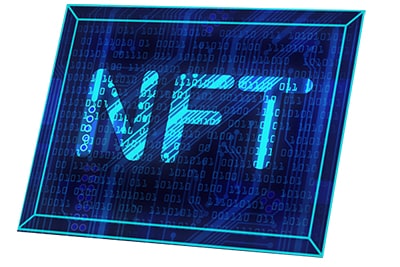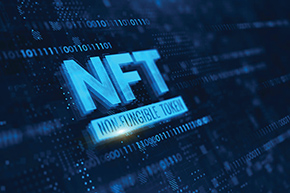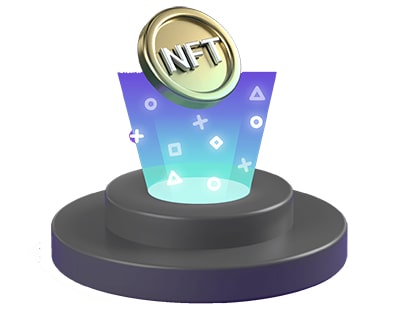NFT Regulations in Singapore
 Introduction
Introduction
Non-fungible tokens or NFTs are presently one of the most popular technology trends in the world. Non-fungible means that this token cannot be exchanged as it is unique, and every token has a unique code and metadata stored on a digital ledger. The property that makes NFTs so popular and appealing is that these digital assets cannot be counterfeited and replicated. The ownership and authenticity of an NFT can be proved through the digital certificate issued on its purchase, and this digital certificate is generally encrypted on the blockchain.
However, a grey area exists regarding NFTs as in effect, there is a separation between the digital asset and the NFT. The NFT only signals towards the existence of an asset and may or may not be treated as an asset in itself. Therefore, the legal status of NFTs is ambiguous and unclear as one does not know whether the owner of an NFT would automatically be granted the ownership of the underlying asset.
The legality of NFTs in Singapore
In Singapore, no specific laws or regulations currently exist to regulate the sale and purchase of NFTs. The Monetary Authority of Singapore (MAS) is the regulatory body that issues and regulates the currency in Singapore. As MAS does not recognize cryptocurrency or NFTs as a form of legal tender in the country, they are not regulated by the laws issued by MAS.
In 2020, the Payment Services Act (PSA) was enacted to provide a legal framework for payment gateways, systems, and service providers. The Act defines digital payment tokens under Section 2 as any digital terms of value other than an excluded digital representation of value. These excluded digital representations of value are the digital representations of value prescribed by the Authorities as excluded. Even though NFTs are not explicitly excluded from the purview of PSA, they may be excluded as NFTS may fall under “limited purpose digital payment tokens,” which are exempted from the purview of PSA. Furthermore, under the definition of digital payment token, the Act defined such a token as:
- one that may be expressed as a unit;
- is not denominated in any currency;
- is or is intended to be a medium of exchange that is accepted by the public as payment of goods and service;
- can be stored, traded or transferred electronically and;
- satisfied other conditions as prescribed by the Authorities.
 In the case of NFTs, the biggest limitation is that they cannot be a medium of exchange like cryptocurrencies because each NFT is unique and one of its kind and hence, one cannot be exchanged for another. Further, the foremost aim of PSA is to prevent and detect money laundering and terror funding. Therefore, NFTs cannot be logically regulated under the PSA.
In the case of NFTs, the biggest limitation is that they cannot be a medium of exchange like cryptocurrencies because each NFT is unique and one of its kind and hence, one cannot be exchanged for another. Further, the foremost aim of PSA is to prevent and detect money laundering and terror funding. Therefore, NFTs cannot be logically regulated under the PSA.
Despite the absence of any legal regulations for NFTs, many Singaporean artists have created and sold their digital artwork as NFTs. The sale and purchase of such NFTs are presently being governed by the smart contracts linked to such NFTs. Smart contracts entail the terms and conditions governing the creation, sale, and purchase of the NFT in question, and the contract is embedded on the blockchain. NFTs are generated through smart contracts, which verify the ownership and regulate the transferability of the NFT. Smart contracts are understood to be automated and enforceable agreements, having the same legal enforceability as traditional contracts in a common law jurisdiction such as Singapore. Therefore, while purchasing the NFT, the buyer should understand both the terms and conditions of the transfer and the terms and conditions enlisted in the smart contract in order to protect their ownership of the NFT.
NFTs and Intellectual Property Rights
The buyer of an NFT does not automatically confer the intellectual property rights associated with the underlying asset. Such rights can only be acquired if an agreement is made in writing. In the absence of such an express written agreement, the intellectual property rights of the underlying asset will traditionally remain with the artist or creator of the NFT and not the buyer. The currently prevailing notion is that the sale of the NFT does not involve the sale of the actual underlying asset or any intellectual property rights associated with the asset.
For example, in the case of Jack Dorsey’s tweet that was sold for over $ 2.9 million, it was clarified that the buyer of the tweet does not own the copyright of the same, and hence, they would have to seek permission before using the tweet itself. The copyright of the tweet would still be owned by Jack Dorsey and Twitter in this case. The platform, Valuables, wherein the tweet was auctioned, also expressly clarified that owning the tweet means purchasing a digital certificate of the tweet. These tweets were only collectibles, and no copyrights were conferred upon the buyer through the purchase of the NFT.
Therefore, the buyer of NFT cannot claim ownership of the underlying asset, and the buyer also does not own any intellectual property rights associated with the asset. The smart contract essentially only provides the exclusive rights to the digital unique identification code linked to the NFT. Hence, the asset or underlying artistic work will still mostly remain accessible to everyone. Although, in the case wherein a particular NFT is the only digital version of the asset or artistic work, the NFT would prove to be very valuable indeed.
 Conclusion
Conclusion
NFTs likely continue to grow in Singapore and worldwide, given their popularity. However, the legal issues related to NFTs are complex and are currently ambiguous in Singapore in the absence of any specific laws and regulations to regulate the same. At best, these digital tokens can only be regulated through written, enforceable contracts presently. One may sue for breach of contract if the parties are situated in common law jurisdictions. Therefore, one needs to be mindful when entering the trade of NFTs.
 English
English
 عربي
عربي Русский
Русский 官话
官话 português
português
 Türk
Türk 









